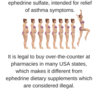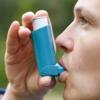What Causes Asthma?
How lifestyle choices and allergens trigger attacks of asthma

Asthma is a kind of disease that is characterized by affecting the airways/outlets that carry air to and from the lungs. People who suffer from this chronic condition (long-lasting or recurrent) are said to be asthmatic. This disease comes like a bolt from the blue - a three-pronged attack on the respiratory system.
Because of Asthma, the lining of the air passages tend to swell constricting the space within along with sticky mucus-like secretions that flow copiously. Even the muscles surrounding the air passages tighten up in asthma. The muscular squeeze, the constriction of air passages and excessive mucus flow indicate that there is less space for air to pass freely. Asthma causes the level of oxygen in the tissues to drop, leaving you breathless with a wave of anxiety opening the doors to panic.
What characterizes Asthma?
Short rasping breaths, a marked tightening of the chest followed by wheezing, and the urge to cough are symptoms that characterize asthma. Since it affects the respiratory system, asthma may keep you awake, interfere with daily exercise, and prevent you from working normally. If you neglect to treat it, you may face a life threatening situation anytime.
What the pulmonologist attempts to do?
The pulmonologist, a specialist in lung diseases and disorders, will try to confirm suspicions of asthma by subjecting you to a Pulmonary Function test. The PFT is actually a series of tests designed to measure the effectiveness of the breathing mechanism and the efficiency of the lungs in oxygenating tissues.
Even blood tests are conducted to detect hidden allergies along with hormone tests to assess the health of the immune system which may be required to identify the type of asthma you are suffering from.
What triggers or causes asthma?
It is wisely said that you are your own best doctor when it comes to treating asthma. It may be possible for you to identify the allergens that trigger the asthma attack. Through an intelligent self-appraisal of your food habits, tastes, smells and weather conditions that keep fluctuating around you, it should be possible to discern a pattern in the asthma attacks.
While tobacco smoke is considered as one of the major factors to contribute for developing breathing disorders, there are other factors like drugs that are equally harmful and irritants for people who are suffering from asthma.
Clinical studies prove that any one factor or combination of the following factors could trigger an asthma attack.
-
Hormonal changes that trigger asthma
Women may find asthma more closely associated with their menstrual cycle, thereby pointing to a hormonal cause. It is also a fact that the use of oral contraceptives reduces incidences of asthma, and this could be due the reduction in hormonal activity. -
Additives and preservatives in processed foods
Maturing wine, processed seafood (especially shrimps), dry fruits and commercial fruit drinks use sulfite compounds as preservatives. The breakdown of sulfite compounds in the maturation process and during digestion releases vapors that can irritate the air passages triggering asthma in some people. Once a person figures out the exact element causing the problem, he should then try to avoid consuming it in any form. -
Sensitivity to anti-inflammatory medication
Aspirin and Ibuprofen, two widely used medications, can trigger asthma in some people. This happens because the medication causes Arachidonic acid (a fatty acid commonly found in meat and dairy products) to metabolize and form byproducts that inflame lung tissue. -
Patients on hypertension medication
Hormones like adrenaline stimulate higher cardiac rhythm, faster breathing and increase blood pressure. Beta blockers in BP medication play a vital role in countering the action of such hormones. Patients prone to asthma need to be careful because the same medication weakens lung function and triggers asthma attacks.
The intake of beta blockers must always be taken as per the prescriptions advised by the doctor. ACE inhibitors are another category of drugs that dilate blood vessels to reduce blood pressure. Prolonged use of these drugs could create lung complications, especially in people who are prone to asthma. -
Cockroaches, bugs, and rodents
Close contact with fecal matter or droppings of bugs, rodents and cockroaches can trigger asthma in both city dwellers and the rural populace. The same also holds true for pets. Shedding hair, peeling dried skin cells, dribbles of pet urine and saliva may contain allergens that irritate the air passages of pet owners.
The best way to avoid such situations is by maintaining a proper balanced hygiene of not only your on personal self but also of your personal space. -
Changing weather may be sensitizing your lungs
Environmental triggers may operate both in hot humid weather and in cold or dry weather conditions depending on the individual. Outdoor exercising in asthma-inducing weather should generally be avoided. During periods of heavy air pollution, there tend to be increases in asthma symptoms and hospital admissions as in these conditions, sulfur dioxide is produced which results in asthma attacks by constricting airways.
Allergic reactions and asthma symptoms are often the result of indoor air pollution from mold or noxious fumes from household cleaners and paints. Other indoor environmental factors associated with asthma may include nitrogen oxide from gas stoves. In fact, people who cook with gas are more likely to have symptoms such as wheezing, breathlessness, asthma attacks, and hay fever.
How Stress provokes Asthma?
When you hold your breath or breathe in shallow bursts, your chest tightens and a wave of panic overcomes you – these are symptoms of stress which also happen to be mirror images of what asthma does to you. If you analyze asthma attacks over the preceding months and the stress factors that troubled you, it may be possible to identify stress as the contributing factor to your asthma.
The Last Word
Developing a self-caring strategy that avoids asthma-inducing triggers should be your immediate priority. Maintaining an asthma diary and asthma action plan would be your second line of defense. Make it a point to reign in those emotional triggers that create stress. Always vow to visit a doctor even when you trigger or observe the slightest of change developing in your breathing pattern.














